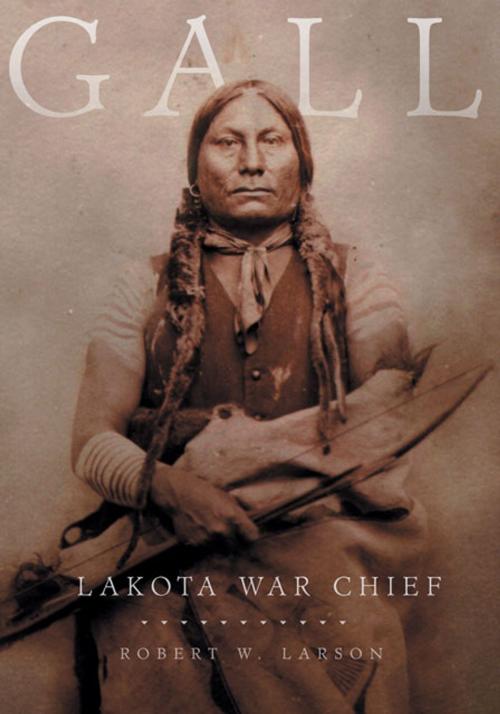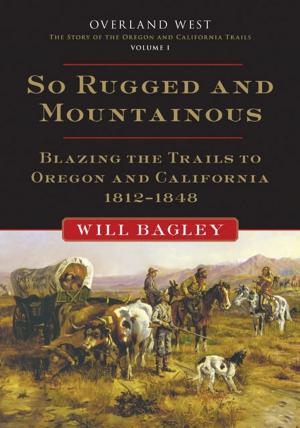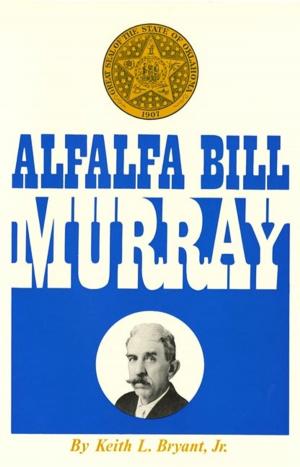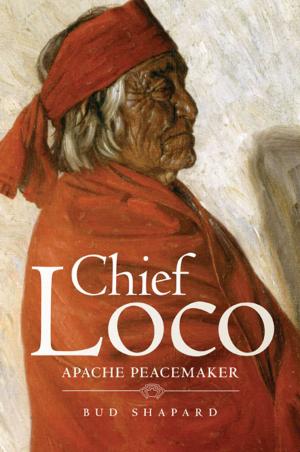Gall: Lakota War Chief
Lakota War Chief
Nonfiction, History, Americas, Native American, Military, United States, Biography & Memoir| Author: | Robert W. Larson | ISBN: | 9780806183657 |
| Publisher: | University of Oklahoma Press | Publication: | November 28, 2011 |
| Imprint: | University of Oklahoma Press | Language: | English |
| Author: | Robert W. Larson |
| ISBN: | 9780806183657 |
| Publisher: | University of Oklahoma Press |
| Publication: | November 28, 2011 |
| Imprint: | University of Oklahoma Press |
| Language: | English |
Called the “Fighting Cock of the Sioux” by U.S. soldiers, Hunkpapa warrior Gall was a great Lakota chief who, along with Sitting Bull and Crazy Horse, resisted efforts by the U.S. government to annex the Black Hills. It was Gall, enraged by the slaughter of his family, who led the charge across Medicine Tail Ford to attack Custer’s main forces on the other side of the Little Bighorn.
Robert W. Larson now sorts through contrasting views of Gall, to determine the real character of this legendary Sioux. This first-ever scholarly biography also focuses on the actions Gall took during his final years on the reservation, unraveling his last fourteen years to better understand his previous forty.
Gall, Sitting Bull’s most able lieutenant, accompanied him into exile in Canada. Once back on the reservation, though, he broke with his chief over Ghost Dance traditionalism and instead supported Indian agent James McLaughlin’s more realistic agenda. Tracing Gall’s evolution from a fearless warrior to a representative of his people, Larson shows that Gall contended with shifting political and military conditions while remaining loyal to the interests of his tribe.
Filling many gaps in our understanding of this warrior and his relationship with Sitting Bull, this engaging biography also offers new interpretations of the Little Bighorn that lay to rest the contention that Gall was “Custer’s Conqueror.” Gall: Lakota War Chief broadens our understanding of both the man and his people.
Called the “Fighting Cock of the Sioux” by U.S. soldiers, Hunkpapa warrior Gall was a great Lakota chief who, along with Sitting Bull and Crazy Horse, resisted efforts by the U.S. government to annex the Black Hills. It was Gall, enraged by the slaughter of his family, who led the charge across Medicine Tail Ford to attack Custer’s main forces on the other side of the Little Bighorn.
Robert W. Larson now sorts through contrasting views of Gall, to determine the real character of this legendary Sioux. This first-ever scholarly biography also focuses on the actions Gall took during his final years on the reservation, unraveling his last fourteen years to better understand his previous forty.
Gall, Sitting Bull’s most able lieutenant, accompanied him into exile in Canada. Once back on the reservation, though, he broke with his chief over Ghost Dance traditionalism and instead supported Indian agent James McLaughlin’s more realistic agenda. Tracing Gall’s evolution from a fearless warrior to a representative of his people, Larson shows that Gall contended with shifting political and military conditions while remaining loyal to the interests of his tribe.
Filling many gaps in our understanding of this warrior and his relationship with Sitting Bull, this engaging biography also offers new interpretations of the Little Bighorn that lay to rest the contention that Gall was “Custer’s Conqueror.” Gall: Lakota War Chief broadens our understanding of both the man and his people.















